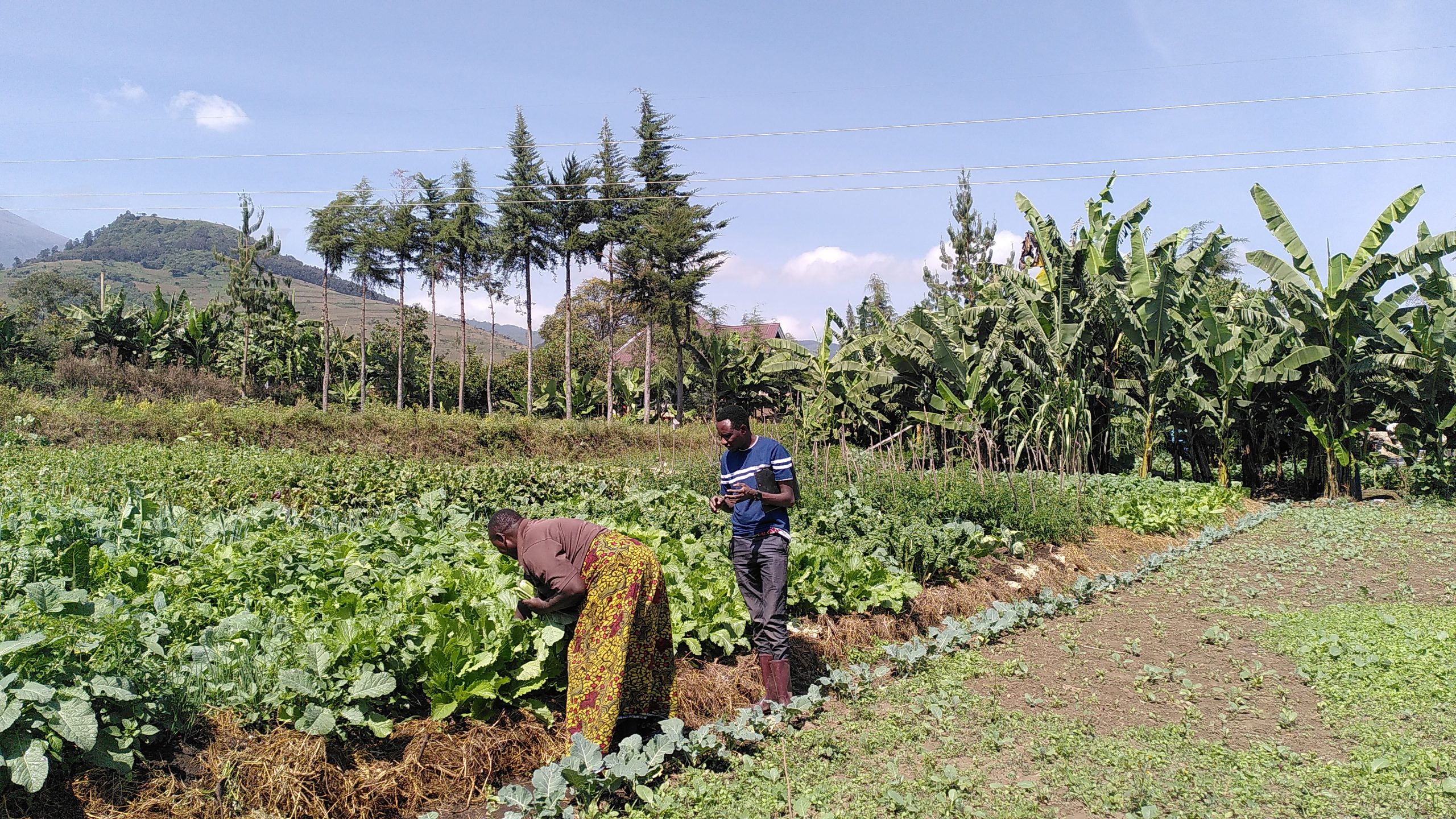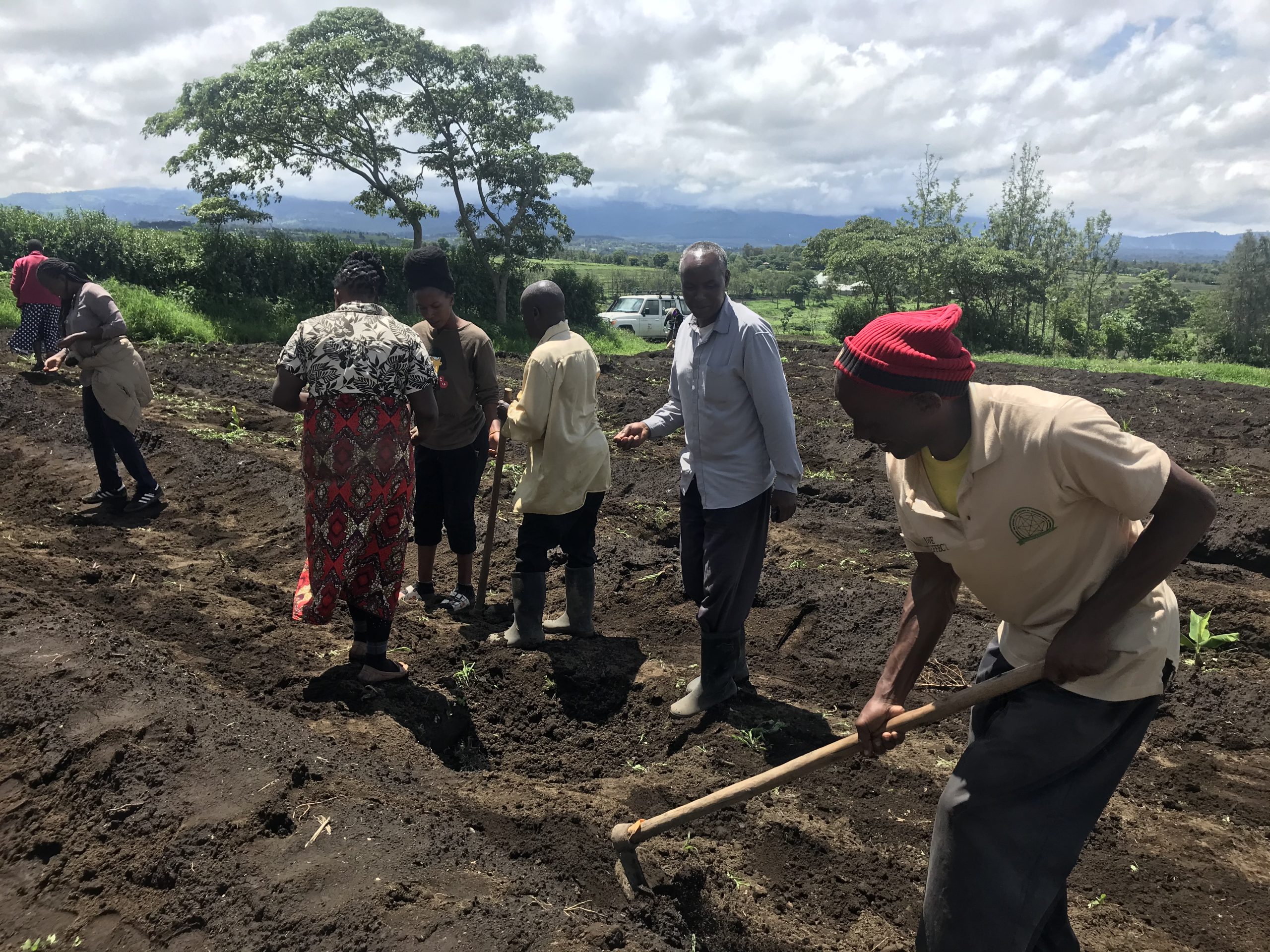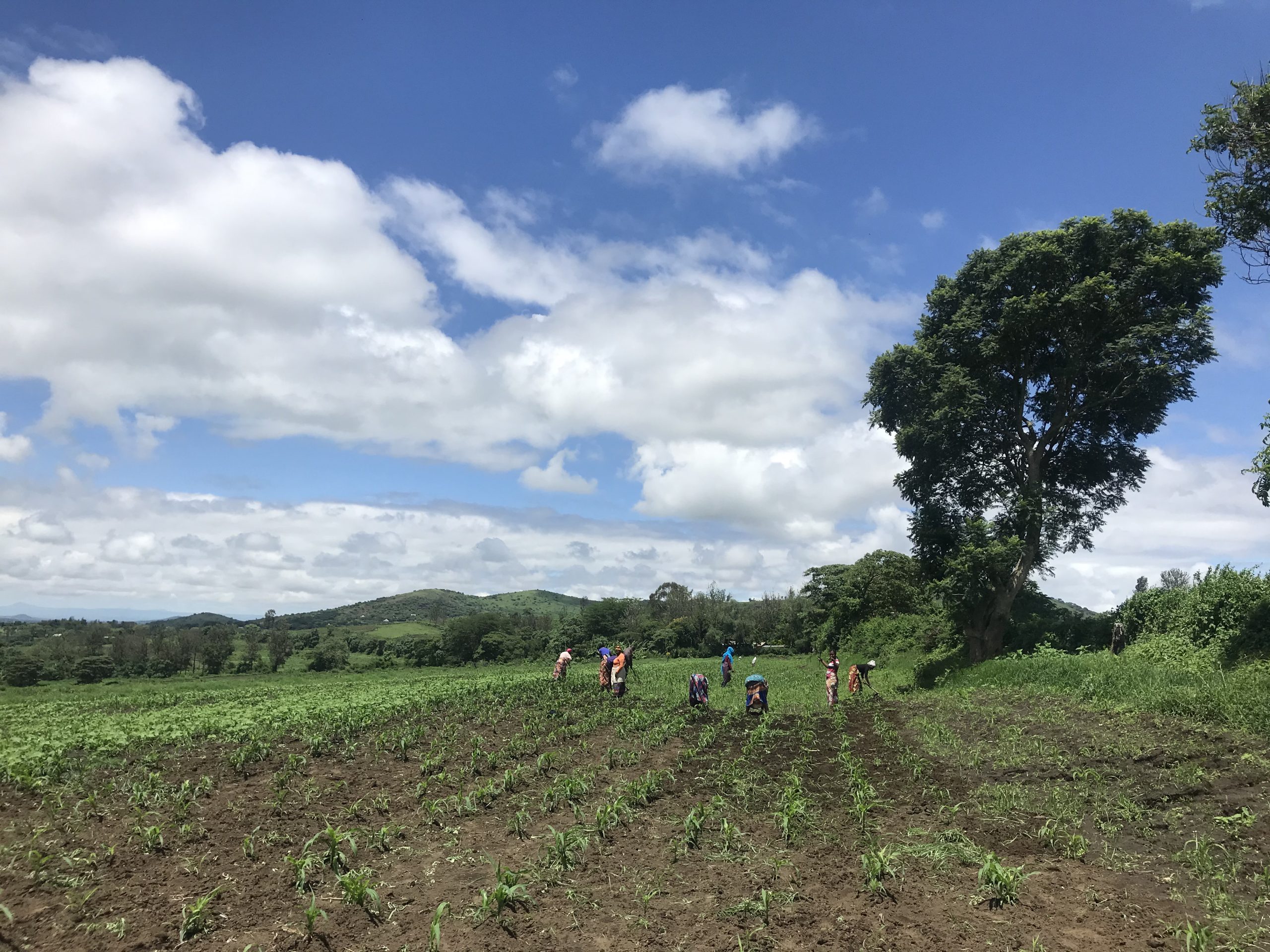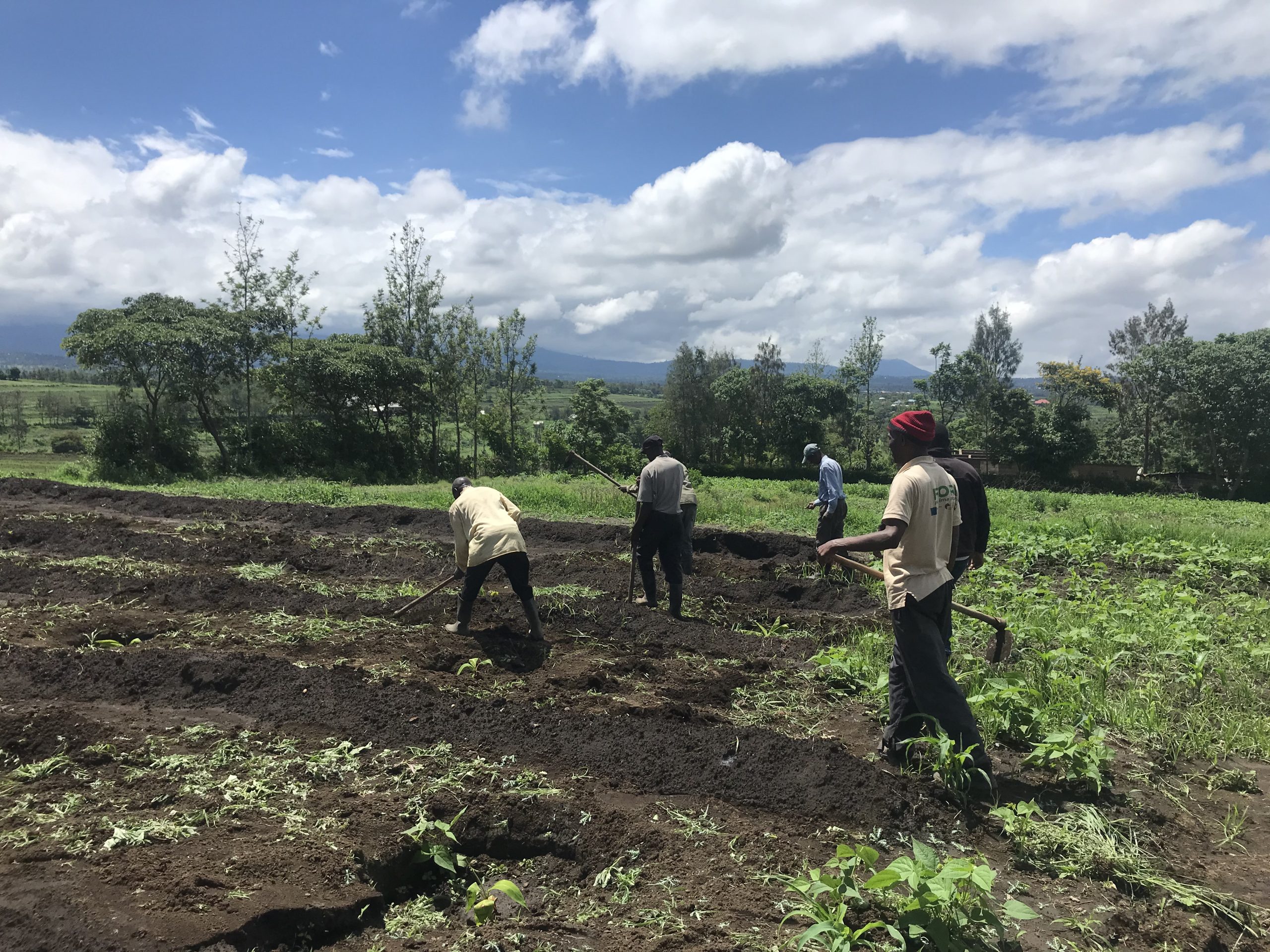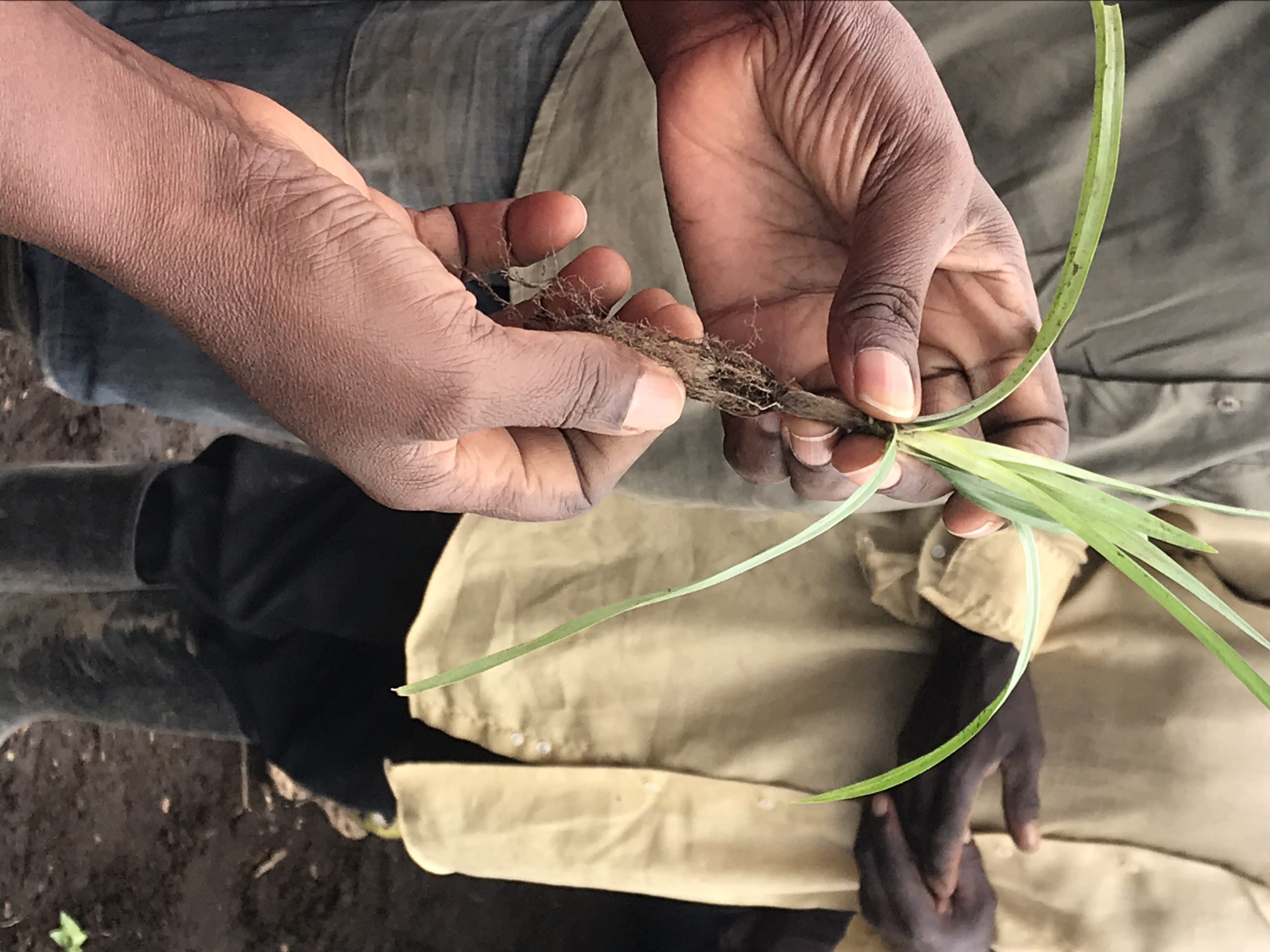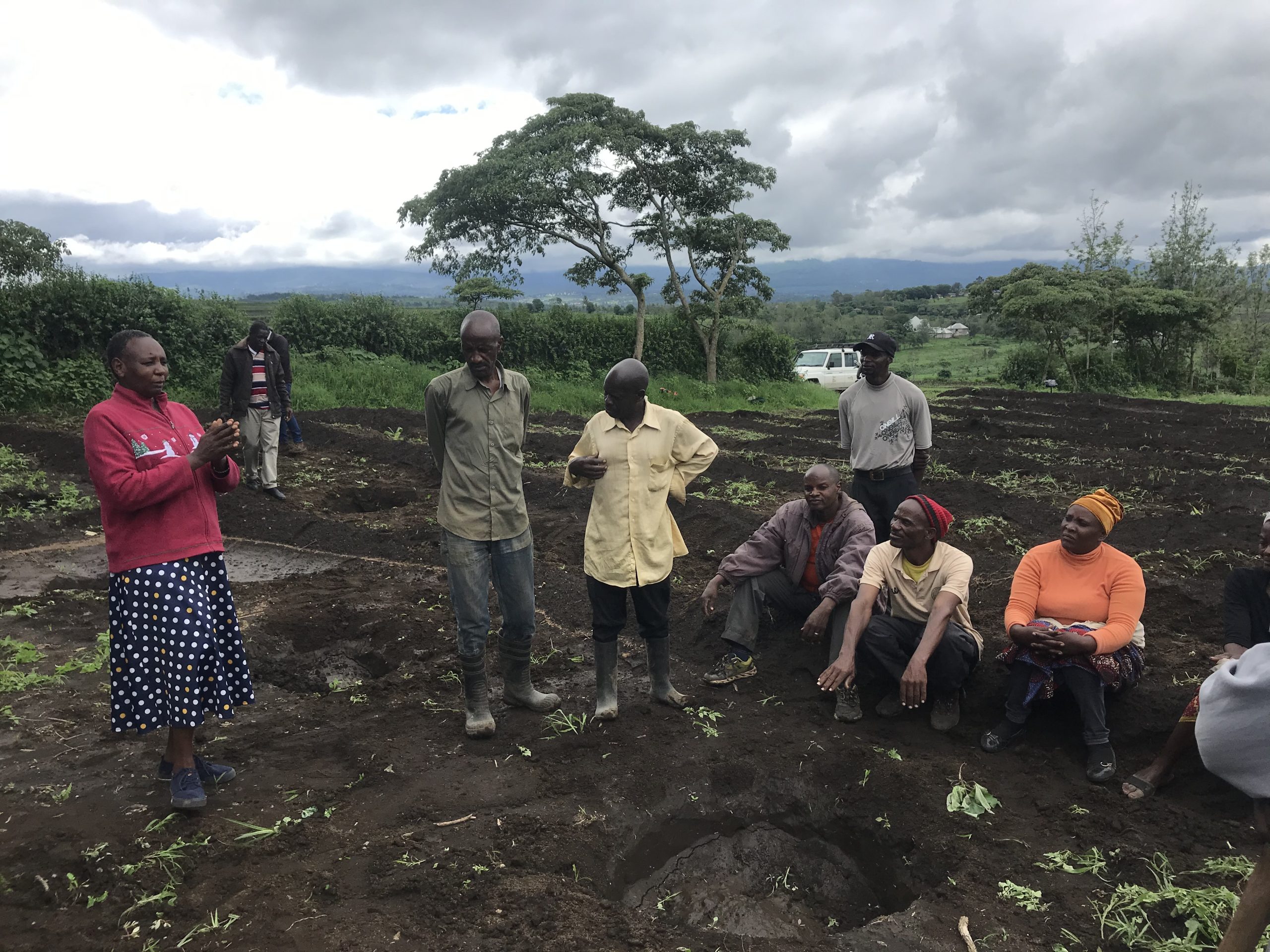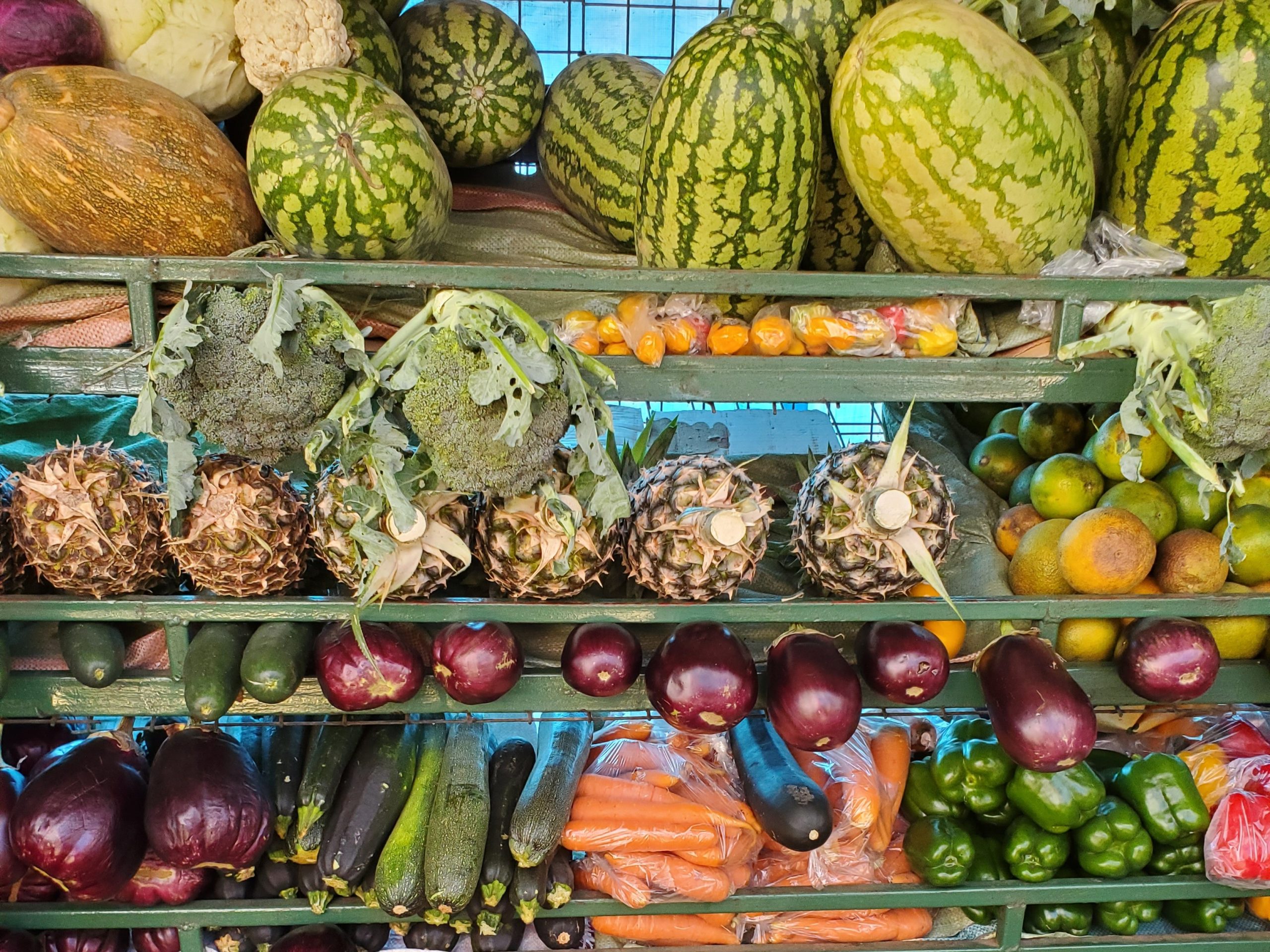Project Kilimo Endelevu Arusha
Tanzania
The project -implemented between February 2022 and May 2025- supported family farms and contributed to a sustainable food system based on agroecology and sustainable land management and to the nutritional sovereignty of the Arusha region, in Northern Tanzania. This impact was made possible through activities around agroecological practices, marketing of agroecological products, support of stakeholders, and advocacy towards local policymakers.
Lead organization
LEAD ORGANIZATION:
The Centre d’Actions et de Réalisations Internationales (CARI) is a French association for international solidarity, which has been active since 1998 in combatting desertification in the Sahara and the Sahel regions. Led by pioneers in agro-ecology, CARI is committed to safeguarding the nurturing heritage of arid and fragile environments. CARI promotes a sustainable agricultural model (agroecology, family farming) as a solution to land degradation in arid zones in rural areas of three main types: oasis regions, semi-arid zones in dry Africa, and Mediterranean climate terroirs in France.
PARTNER ORGANIZATIONS:
Iles de Paix (IDP) is a Belgian NGO, created in the 1960s, whose interventions aim to enable populations to pursue their own sustainable development process independently and with dignity. IDP promotes food systems that guarantee the right to food for all and all without compromising the economic, social and environmental foundations necessary for food and nutritional security for future generations. To this end, IDP supports adoption of efficient and affordable techniques and technologies by small-scale farmers and small businesses.
RECODA is a Tanzanian NGO created in 2000, whose mission is to bridge the technology gap in agricultural development by building the capacity of grassroots organizations and providing advisory support to farmers. RECODA supports farmers’ organizations in their production (conservation agriculture, agricultural diversification), storage, processing and marketing activities. The NGO has built up solid expertise in strengthening the resilience and food security of family farms, so much so that after more than 20 years of action in all regions of Tanzania, RECODA is recognized as a leading NGO in rural development.
MVIWAARUSHA is a farmers’ organization active since 2010 and composed of small-holder farmers (herders, farmers, beekeepers and fishermen) from Arusha Region. It currently has 13,945 members (including 8,611 women) organized in village and district groups. MVIWAARUSHA aims to promote the economic development of small farmers through support for the production, processing and marketing of agricultural produce. It also supports its members’ advocacy on issues that concern them. It is gaining increasing recognition as the voice of farmers and herders on the public and political stage.
Main beneficiaries
- 1500 Small-holder farmers
- Small businesses: restaurants, fruit and vegetable vendors
- Local government representatives and extension officers
- 200, Members of regional and national networks on sustainable farming and agroecology
Country
Arusha Region, Tanzania
Timeline
February 2022 – May 2025
Funding
Coopération Belge (DGD), Iles de Paix, Agence Française de Développement (AFD), Mirova Foundation, Région Occitanie
Mission
The project supports the resilience of the populations by contributing to a sustainable food system based on agroecology and sustainable land management in the Arusha Region (northern Tanzania).
Context
Tanzania is experiencing high levels of food insecurity, affecting particularly rural populations. At the same time, severe environmental constraints are threatening farming systems throughout the country. The Arusha region is particularly affected by these challenges: it is regularly declared a “food deficit region” due to drought episodes. In the Arusha Rural district, almost all the land is occupied by human activities, resulting in the over-exploitation of natural resources. Deforestation leads to severe erosion during heavy rains, and to the degradation of farming land. In a context of demographic growth, small-holder farms are confronted with the challenge of securing their food and income with limited resources. Despite the proximity of the urban town of Arusha farmers are finding it difficult to generate sufficient income from the marketing of their produce. In addition to their limited power to set prices, there is a lack of recognition of the quality of their agroecological products. The quality and safety of fruits, vegetables and other food products is insufficiently considered by consumers, restaurants and market vendors. At local level, elected representatives are aware of the challenges of sustainable production and healthy eating, but they delegate the implementation of development actions to the private sector, without questioning the potential value created for the territory and their role and legitimacy of action as pilots of these territories. At national level, the adoption of policies to promote sustainable food systems remains weak, partly due to the compartmentalization of environmental and agricultural issues.
Strategy
Objectives
- Improve food and nutritional security, as well as economic viability of small-scale farmers through sustainable land management and agroecological intensification
- Change the institutional and social environment to facilitate the deployment of sustainable land management and agroecological intensification through multi-stakeholder dialogue, sensitization and advocacy
Activities
Support to agroecological transition and promotion of sustainable land management:
- Introduction of practices and techniques tailored to farmers’ needs and offering multiple benefits. The farmers organized themselves in 21 groups (from 10 villages) with more than 700 small scale farmers, where they collectively chose the agroecological production techniques they would be trained in. These techniques involve improving soil management, manufacturing biopesticides, integrating vegetable and fruit crops, revitalization of farmers local seed systems etc. Trainings were conducted in each group, with demonstration set-up on collective plots. Groups members meet every week to share what they have learned. Toward the end of the project, 18 new groups were set-up in 9 new villages with the support of spreading lead farmers. The project has thus reached and supported close to 1500 farmers, over 70% of them are women.
- To diversify production systems, the project also supported the establishment of livestock farming (chickens, pigs and goats), generating economic benefits (sale of animals and by-products), social benefits (improved nutrition, collaboration and experience sharing between beneficiary farmers) and environmental benefits (availability of manure). The introduction of poultry farming is particularly suited to women’s interests and knowledge.
- To ensure wide dissemination of agroecological and land restoration practices, the project strengthened local expertise by training over 300 agroecological champions, farmer technical leaders and spreading farmers, who play a role in demonstrating and providing technical support to their peers. Technical training has also benefited to local extension services, thus building a locally embedded expertise.
- Land restoration techniques were identified based on assessments and discussions with village leaders and farmer groups. These are indigenous techniques (Fanya Juu/Fanya Chini terraces) adapted to the restoration of sloping land. These techniques are effective in limiting erosion and improving water conservation in the soil. When combined with agroecological production techniques, they are showing initial results in improving soil health through increased soil fertility and productivity, reduced erosion and better water infiltration into the soil. Land restoration techniques are disseminated in the villages by “environmental champions”. They are farmers that were trained and equipped to train other farmers. 220 hectares of farmland and grazing land were restored, using Fanya Juu / Fanya Chini terraces, farmer managed natural regeneration. The project also supported the development of 6 tree nurseries managed by farmers and supported reforestation campaigns (over 100 000 trees were planted).
Support to marketing and awareness raising on agroecological products:
- To improve post-harvest management and grain storage, the project organised demonstrations of practices and techniques adapted to family farms. Storage tests enabled farmers to assess the effectiveness of the proposed techniques (airtight bags and tanks) and estimate their reproducibility: airtight bags are more accessible in terms of price and availability in shops. The organisation of demonstrations and technical training was also supported by farmer groups. And the project enabled the establishment of collective storage options for seeds (farmer managed seed banks).
- To improve marketing of agroecological products, the project trained and provided support to 58 market small businesses (restaurants, market vendors and street vendors). They were trained on safe and healthy food, and they received equipment to improve the visibility of agroecological products. They were also linked with the farmers supported by the project. Members of several farmer groups were also supported by the project to sell collectively their fruit and vegetables during organic markets and farmers fairs.
- To ensure the quality of production and improve the differentiation between conventional and agroecological products, the project began supporting farmer groups in certification through a participatory guarantee system. This PGS is based on the East Africa Organic Products Standards and is associated with a brand “Kilimo Hai”. The PGS allows farmers to organize in groups and ensure compliance with the production standards through peer assessment.
Support to territorial development and mobilization of stakeholders in a sustainable food system
- The project contributed to local multi-stakeholder platforms (the Arusha Collaborators Forum on Agroecology – ACAF and the Arusha Sustainable Food Systems Platform – ASFSP), with a view to creating synergies between local actors around a sustainable food system. These platforms meet regularly to share experiences on topics of common interest. The project has helped to broaden their thematic scope by bringing new topics such as agroecology, farmer-managed seed systems, post-harvest management, etc.
- To foster local authorities’ mobilization and commitment, the project engaged with village leaders and representatives from the rural district of Arusha. They were involved in field activities (assessment, training, demonstrations), which helped to strengthen their knowledge of agroecology and sustainable land management. In the city of Arusha, the project has raised awareness among elected officials and local stakeholders about sustainable food systems and deepened discussions on waste management, sparking genuine interest among stakeholders.
- The project has set up a pilot initiative to facilitate territorial consultation at a village level (Losikito), drawing on methodological approaches and tools developed by CARI in the Sahel. A series of consultation meetings in the village, involving village authorities, has led to the development of a village development plan based on a shared vision. The stakeholders in Losikito have taken ownership of this development plan and are now able to present it.
Sensitization and advocacy to mobilize the public opinion and transform political frameworks
- A variety of awareness-raising activities targeting rural (producers) and urban (consumers) audiences were conducted. Schoolchildren were sensitized in environmental protection, sustainable farming and healthy eating. Schools were also supported in setting up vegetable plots, as they are a powerful channel for introducing techniques and convincing parents to adopt new practices in terms of agriculture and nutrition. Farmers groups received cooking training and demonstrations, and technical lead farmers received advanced training on nutrition. The project finally allowed the partners to organize radio campaigns, and several farming and healthy food fairs in the Arusha City to sensitize consumers.
- The project supported several pre-existing or emerging advocacy dynamics in Tanzania. The project thus contributed to the actions of the working group of civil society actors on agroecology, whose actions led the national government to adopt a national strategy for organic and ecological agriculture in 2023. The project also supported the SHIWAKUTA platform created in 2020, which brings together regional farmers’ organizations in Tanzania and is led by MVIWAARUSHA. The project enabled it to strengthen its structure and governance through the development of administrative manuals and the organization of general assemblies. The platform also adopted a 5-year advocacy strategy and the project contributed to its implementation (training of members, development of a review of policy frameworks, development of position papers, meetings with political leaders, etc.).
- The project also enabled partners to expand their advocacy efforts to new themes, particularly the challenges of combating desertification. CARI shared its experience and knowledge on desertification and the UNCCD framework. The partners organized two national meetings to prepare for collective advocacy on desertification, and they participated to the Desertif’actions Summit in 2022 and UNCCD COP16 in 2024.
Outcomes and lessons learned
Outcomes
- Many changes are already taking place at the farmer level. Farmers are beginning to diversify their production, both in terms of livestock and crops, and are adopting agroecological farming practices (cover crops, increased use of manure, composting, etc.). These practices help reduce some of their production costs while increasing their autonomy (self-production of inputs, storage of indigenous seeds, etc.). This is beginning to contribute to the diversification of their food and income sources and to have a positive impact on their cash flow. Monitoring of the farms using TAPE show positive evolutions of supported farms through CAET scores.
- On farmlands, the combination of land restoration with Fanya Juu / Fanya Chini terraces and agroecological practices (forage grass, minimal soil disturbance, soil cover, use of manure, etc.) start showing improvement of the soil health through increased soil fertility and productivity, reduced erosion, and improved water infiltration into the soil.
- Farmers directly involved in the project have improved their access to quality food in terms of both volume and diversity, thereby saving money and improving their diet. They have also gained a better understanding of the importance of a healthy and diverse diet, as well as improving their post-harvest management practices (storage, processing, etc.). The majority of farmers now sell their surplus at the village level, and the most advanced farmer groups are all reaching new markets in the Arusha region, both in the organic and conventional markets. The sellers and restaurants supported by the project are aware of the importance of agroecological products. They communicate about them and increase their sales.
- Local stakeholders (including local authorities) and social dynamics are increasingly supportive of a sustainable food system. The project enabled local extension officers to learn new techniques and approaches to agroecology and soil restoration. They report using them in other villages outside the KEA perimeter in promoting agroecology.
Enabling conditions
- The project’s intervention logic is based on a comprehensive view of the food system and has made it possible to take action simultaneously in several sectors (natural resources, agricultural production, value chains, etc.), at several geographical scales (plots, villages, city, region, country) and with different actors who are part of the food system network (farmers, local and national authorities, small businesses, etc.). etc.), at several geographical scales (plots, villages, towns, regions, countries) and with different actors who are part of the food system network (farmers, local and national authorities, small businesses, citizens-consumers, civil society networks, etc.). The implementation of this systemic approach was facilitated by the distribution of activities among the four partners in such a way as to combine their expertise in a complementary manner.
- The implementation of the project was facilitated by a high level of buy-in from beneficiaries and stakeholders in the Arusha region, who not only benefited from the project but also contributed to its implementation and dissemination. This buy-in is fostered by the partnership with three organizations that have been established in the Arusha region for several years. As such, they have a solid foundation and are recognized by local stakeholders.
- Adoption of new techniques by farmers was made possible by their belonging to farmers groups. These groups are training spaces and allow peer-to-peer exchange. They allow farmers to deploy solidarity chains for exchange of knowledge and inputs (seeds, seedlings, animals, etc.) Furthermore, as a farmers’ organization, MVIWAARUSHA has close ties with farmers, which has also facilitated their involvement in the project.
- The project reached a high participation of women: the farmers’ groups that had been set up were composed of an average of 70% women, exceeding the initial ambitions. This was facilitated by the consideration of the specific needs of women in the training programs, for example, the introduction of poultry farming corresponded to the interests and knowledge of the women. The schedules for meetings and training sessions were also adapted to their domestic responsibilities. This significant participation by women was also encouraged by the socio-cultural context: women already play a central role in small-scale agriculture and household food security. They are keepers of traditional farming knowledge, seed saving, and nutritional decisions within households. These existing roles made it culturally acceptable and even easy to continue engaging with Kilimo Endelevu project activities
Limiting barriers
- The capital and labor intensiveness of some techniques (such as Fanya Juu / Fanya Chini, water harvesting reservoirs) was discussed with farmers and needed to be further assessed and controlled.
- Among the areas of intervention selected, CARI introduced a new approach to mobilising and collaborating with local authorities, targeting the emergence of a multi-stakeholder dialogue around a shared vision and the collective development of development plans. This approach was new to the partners and required more time than initially anticipated to build their capacities. As a result, the project’s ambitions regarding the facilitation of consultation at the village level and the intervention strategy were revised (only two villages were targeted for a pilot intervention), which made it possible to establish favourable conditions for scaling up during the next phase of the project.
- There isn’t yet enough market differentiation between agroecological and conventional products. Consequently, farmers cannot sell their products at a higher price. On the other hand, the growth of a specific market segment for agroecological products will remain highly dependent on farmers’ production capacity, which will increase slowly.
Hyperlinks
Watch the video of the project: Kilimo Endelevu Arusha Project
Read news on the project: https://www.cariassociation.org/en/stay-informed-with-the-latest-cari-news/etiquettes-kilimo-endelevu-arusha-en/
Contact
Manon Albagnac, Program Officer on desertification and territorial development in Africa’s drylands – CARI sahel@cariassociation.org
Ayesiga Buberwa, Country Director in Tanzania – Iles de Paix ayesiga.buberwa@tz.ilesdepaix.org
Picture credits: CARI Association

